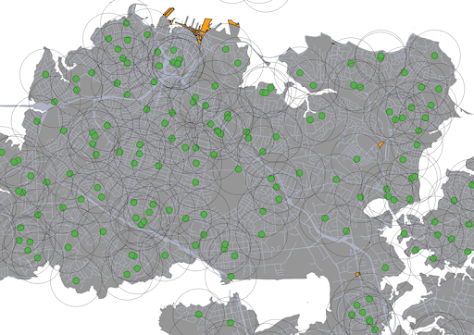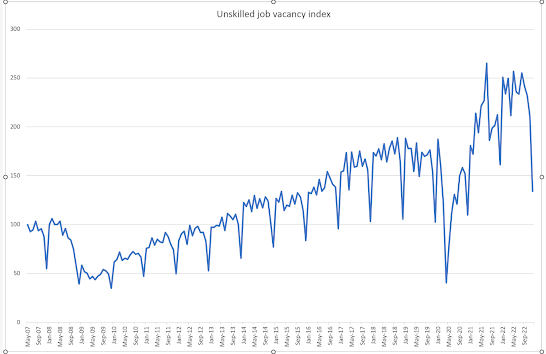But this is the first time the Reserve Bank, which is statutorily tasked with regulating banks, has stepped in so explicitly. It's been warning of "profiteering" in some sectors during the cost of living crisis and in the aftermath of Cyclone Gabrielle, and singled out the widening gap between mortgage and term deposit rates.
"It's a very legitimate thing for the central bank to be concerned about and to be keeping an eye on," Conway says. "It's a general warning across the New Zealand economy that now is not the time for profiteering. Now is actually the time to start paying the price, for climate change and, in this instance, for the cyclone."Commerce Minister Dr Duncan Webb says no decisions have yet been made about the focus of the next market study. "However, I am focused on using the tool to ensure markets operate fairly for consumers," he tells Newsroom. "I am particularly interested in improving markets where the greatest long term gains can be made for ordinary New Zealanders."
I've also thought a market study into banking, and insurance, could be well warranted - but with a very different focus.
I've worried that barriers to entry look awfully high and that we may be missing out on innovations happening overseas as consequence.
Last year I'd urged that ComCom change how it does market studies. Rather than a giant draft study that tries, and inevitably fails, to estimate weighted cost of capital and potential excess returns, start with a desk-based analysis of barriers to entry.
Because whatever you wind up doing will depend on barriers to entry anyway.
Suppose that you really strongly believe that there are high excess profits in whatever sector. If you're right, what's stopping anyone from coming in and eating away at those profits? Remember that profits are a signal that tells other to enter. If they aren't entering, is it because you're wrong about your guess on excess profits? Or is it because there are regulatory, legislative, or other barriers preventing entry?
When ComCom thought there were excess profits in supermarkets, and I was yelling about barriers to entry, some folks argued for KiwiGrocer as cartel-busting parallel to KiwiBank. But now we're talking about banks, and KiwiBank's already there as KiwiBank. And for whatever reason, it seems far less profitable than other banks. Surely that should give some pause.
Now banks wouldn't be the first place I'd be aiming a market study: medical services really should be first in line. But barriers to entry in banking and insurance are obvious things to look at.
But man it's a worry if the RBNZ is wanting the thing aimed at 'profiteering'. If that's the kind of advice the Minister's getting, then expect a request for a very different market study. Instead of looking at barriers to entry, it'll be more like the Supermarkets draft study - where they raked the CEs over the coals for weeks and tied up supermarket exec teams for months in inquiries.
If that's the request that ComCom winds up getting, then it's a test of ComCom.
Do they indulge the Minister's preference for a highly politicised and populist bash on the banks in an election year? Or do they do the work that actually needs doing: checking whether barriers to entry, including the nonsense that RBNZ layers on top of the industry, and CCCFA regs, make for less competition than would be desirable?
Heck, RBNZ is undertaking an investigation into whether it should make it even harder for foreign banks to operate here. And Paul Conway's pointing fingers at banks for profiteering.
Jonathan has a few bits from me in his piece. It'll ungate tomorrow if you pull the /pro from the URL. But the bit including my quotes is here:
Dr Eric Crampton, chief economist at the NZ Initiative think tank, says the appropriate use of a market study would be to ascertain what barriers there are to new entrants to this country's banking market.
New Zealand has been a slow follower on structural changes like open banking, and such easy wins as account number portability. When phone number portability was introduced in this country's cellphone market, it played a critical role in breaking apart the Telecom-Clear duopoly.
It's expected bank account portability would make it easier for bank customers to move their money (or their debt) to more a competitive bank.
What all this means is it can be difficult for a new player to get a toehold in banking here, Crampton says. "In groceries, the Commerce Commission found zoning and consenting proved substantial barriers preventing entry. In building materials, the commission’s draft study pointed to substantial barriers to using foreign-sourced building materials. In both cases, easing barriers to entry would improve competition," Crampton says.
"If the Commerce Minister told the commission to look at barriers to entry in banking, or in insurance, that could be worthwhile. The combination of barriers to entry and regulatory measures like the Credit Contracts and Consumer Finance Act may have had substantial detrimental effects on competition.
"If so, it would be great to document the barriers, their effects, and how those barriers could be eased. Is New Zealand seeing the same innovations in FinTech and InsuranceTech as are being seen overseas? Could a foreign online financial service provider easily enter the New Zealand market, or would it be impossibly hard given our scale? What are the effects on consumers?
"But I would greatly worry that, in an election year, a minister could be tempted to send the commission off on more populist tilts against the banks," he says. "Sending the commission off to interrogate the banks about interest rates and mortgage rates would be politically tempting and help divert attention from the prior government failures that led to rising rates. I would also hope that the commission would push back against proposed studies that would shed a lot more political heat than provide actual light."
It would be exceptionally disappointing if ComCom got put to populist electoral purpose this year.





